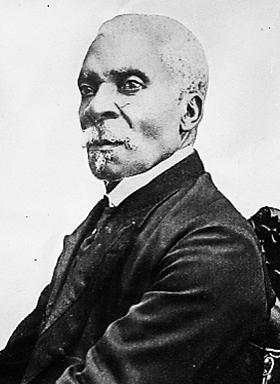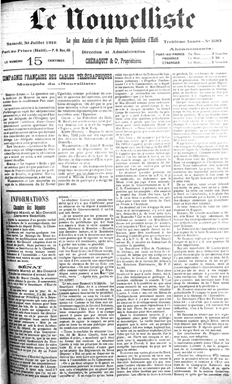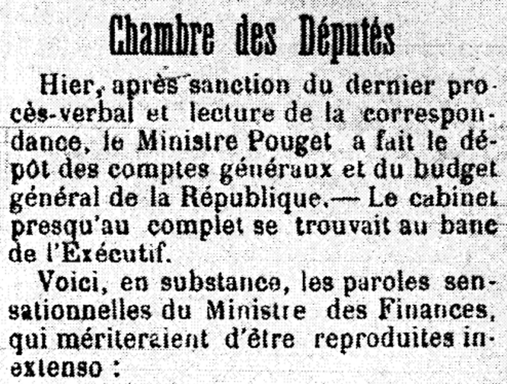"An Unbalanced Budget" by Antoine Bervin
An excerpt from Bervin’s Louis-Edouard Pouget: diplomate, tribun, homme politique et journaliste (1988). Bervin was a publicist who served under President Sténio Vincent. Below, Bervin explains how Simon’s Minister of Finance, Louis Edouard Pouget, implemented conservative policies that were unpopular. No sooner was Pouget driven into exile than Simon made bad investments, like the McDonald railroad.
 On 15 February 1910, President Antoine Simon entrusted [Louis Edouard] Pouget with the portfolios of finance and commerce. [Pouget] was intimidated by the colossal task he was given…. At a meeting with the Chamber of Deputies Budget-and-Accounts Committee on 18 May 1910, Pouget outlined his economic policy, which was no less than a triumph for the principles of economics and a rational economy. This is to say it would make sure that taxes were collected and public expenditures were limited to whatever income the state made.
On 15 February 1910, President Antoine Simon entrusted [Louis Edouard] Pouget with the portfolios of finance and commerce. [Pouget] was intimidated by the colossal task he was given…. At a meeting with the Chamber of Deputies Budget-and-Accounts Committee on 18 May 1910, Pouget outlined his economic policy, which was no less than a triumph for the principles of economics and a rational economy. This is to say it would make sure that taxes were collected and public expenditures were limited to whatever income the state made.
Determined to stop the increase in extortion, the new minister appointed special agents to supervise how much merchandise was loaded and unloaded in each port. He took severe measures [to punish] those who lied about their payloads. He regulated packaged mail. He introduced a paper stamp for the customs service and the accounting system to eliminate excess paperwork and improve organization. And he created two new border checkpoints to make sure that our coffee would not reach our neighbors untaxed.


[Pouget] opposed taxes and surtaxes that hurt our commerce. He opposed loans. He opposed [any loan or purchase] that would be paid later by new taxes or new loans that were a burden to the people. Above all he took on the thankless job to settle the past, present, and future commitments of a state that always had a deficit.
Finally [Pouget had to cope with] all the misery that his work as minister entailed, the injustices, the slander, and the hate from everyone. Pouget was minister less than four months. He resigned [to protest] a French loan worth 65 million [Francs]. And on the way out he insisted that he was the "emperor" in his ministry.